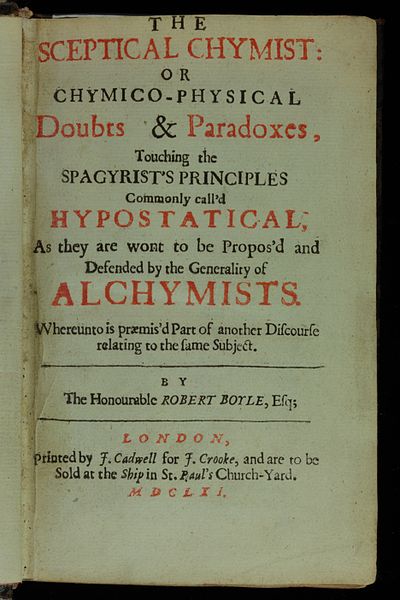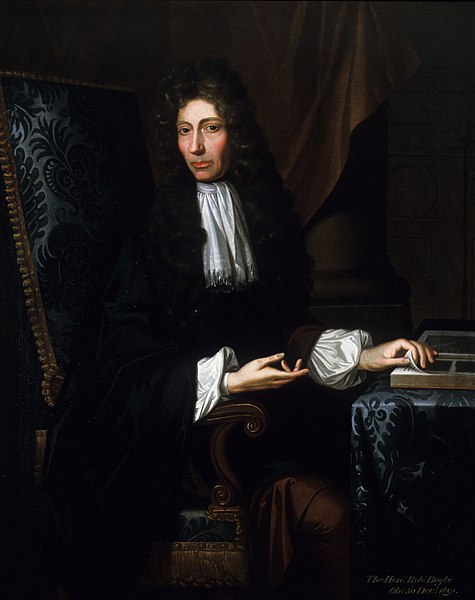The Sceptical Chymist: or Chymico-Physical Doubts & Paradoxes is the title of a book by Robert Boyle, published in London in 1661. In the form of a dialogue, the Sceptical Chymist presented Boyle's hypothesis that matter consisted of corpuscles and clusters of corpuscles in motion and that every phenomenon was the result of collisions of particles in motion. Boyle also objected to the definitions of elemental bodies propounded by Aristotle and by Paracelsus, instead defining elements as "perfectly unmingled bodies". For these reasons Robert Boyle has sometimes been called the founder of modern chemistry.
Title page
Robert Boyle was an Anglo-Irish natural philosopher, chemist, physicist, alchemist and inventor. Boyle is largely regarded today as the first modern chemist, and therefore one of the founders of modern chemistry, and one of the pioneers of modern experimental scientific method. He is best known for Boyle's law, which describes the inversely proportional relationship between the absolute pressure and volume of a gas, if the temperature is kept constant within a closed system. Among his works, The Sceptical Chymist is seen as a cornerstone book in the field of chemistry. He was a devout and pious Anglican and is noted for his writings in theology.
Boyle in 1689
Sculpture of a young boy, thought to be Boyle, on his parents' monument in St Patrick's Cathedral, Dublin.
Boyle's arms (shown on the right right) displayed in the Great Quadrangle of All Souls College, Oxford
One of Robert Boyle's notebooks (1690-1691) held by the Royal Society of London. The Royal Society archives holds 46 volumes of philosophical, scientific and theological papers by Boyle and seven volumes of his correspondence.





